Navigating the logistics of importing goods from China to Niger can be a complex but rewarding endeavor. Sea freight stands out as a preferred shipping method, offering cost-effective solutions for transporting large volumes of goods across vast distances. With its myriad benefits—including substantial capacity, lower carbon emissions, and reliability—sea freight enables businesses to efficiently manage their supply chains. In this comprehensive guide, we will walk you through the entire sea freight process, from selecting the appropriate shipping method to understanding customs clearance and estimating shipping costs and transit times. Whether you’re a seasoned importer or new to the world of international trade, this guide will provide valuable insights to streamline your shipping experience.
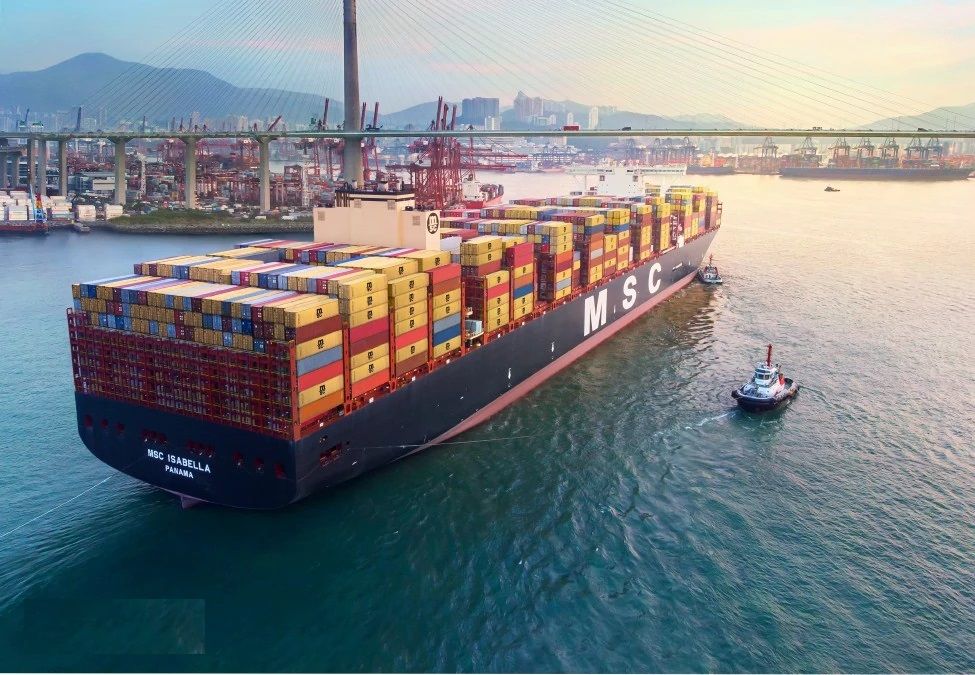
Understanding Sea Freight
Sea freight refers to the transportation of goods via maritime vessels. It encompasses a wide range of shipping methods and is predominantly used for bulk cargo, heavy loads, and long-distance trade. Choosing sea freight as a shipping option can be advantageous for various reasons:
-
Cost-Effectiveness: Sea freight is generally more economical than air freight, especially for large volumes of goods. The shipping costs per unit decrease significantly as the shipment volume increases, making it the preferred choice for global traders looking to optimize shipping expenses.
-
Capacity: Maritime vessels can accommodate a wide range of cargo types, including oversized goods and hazardous materials. With container ships designed to carry up to 24,000 TEUs (twenty-foot equivalent units), sea freight offers unmatched capacity compared to other shipping methods.
-
Environmental Impact: Shipping by sea tends to produce fewer carbon emissions per ton of cargo than air freight. This can be a critical consideration for businesses committed to sustainability practices.
-
Reliability: While sea freight may take longer than air freight, it is generally more predictable in terms of scheduling. This reliability allows businesses to plan their inventory and logistics more efficiently.
-
Safety: Sea freight is considered safer for transporting bulky and heavy cargo. The risks of damage during transit are reduced, thanks to the robust nature of container vessels and the careful handling of goods during loading and unloading.
Benefits of Sea Freight for Importing Goods
In the context of importing goods, particularly from countries like China, choosing sea freight can provide numerous benefits:
| Benefit | Description |
|---|---|
| Cost Savings | Lower shipping costs compared to air freight, especially for large volumes or heavy items. |
| Variety of Options | Multiple shipping methods available, including Full Container Load (FCL) and Less than Container Load (LCL), catering to different shipment sizes and requirements. |
| Global Reach | Extensive network of shipping routes connecting major international ports, facilitating trade across continents. |
| Time Flexibility | While longer transit times than air freight, sea freight is suitable for less time-sensitive shipments, allowing businesses to manage their supply chain efficiently. |
| Security | Enhanced security due to the robust construction of cargo vessels and strict protocols during loading and unloading. |
Key Considerations for Shipping from China to Niger
When considering shipping from China to Niger, it is essential to evaluate various factors that can influence the overall shipping process. Understanding these factors will help streamline operations and ensure compliance with local regulations.
Shipping Methods
There are several shipping methods to consider when transporting goods from China to Niger:
-
Full Container Load (FCL): Ideal for large shipments, FCL means that the entire container is filled with goods from one supplier. This method is cost-effective for bulk shipments and offers reduced transit times.
-
Less than Container Load (LCL): Suitable for smaller shipments that do not require a full container. Multiple suppliers’ goods are consolidated into one container, allowing for cost savings.
-
Roll-on/Roll-off (RoRo): Primarily used for vehicles and machinery, RoRo is a method where cargo is driven onto the vessel. It is an efficient way to transport large equipment and vehicles.
Shipping Routes
Selecting the right shipping route is vital for timely delivery. For shipments from China to Niger, the common routes typically involve:
- Direct Sea Route: Goods are shipped directly from Chinese ports like Shanghai or Shenzhen to major ports in West Africa, such as Lagos or Cotonou, before reaching Niger.
- Transshipment Points: Goods may be sent to a transshipment port where they are transferred to another vessel for the final leg to Niger. Common transshipment points include ports in Europe or the Middle East.
Required Documents
Ensuring all necessary documentation is in order is critical for a smooth shipping process. Key documents for shipping from China to Niger include:
-
Commercial Invoice: A document detailing the transaction between the buyer and seller, including descriptions of the goods and pricing.
-
Packing List: A detailed list of the contents of each package, including dimensions and weight.
-
Bill of Lading: A legal document between the shipper and carrier that outlines the terms of transport.
-
Import/Export Permits: Compliance with both Chinese export regulations and Niger’s import regulations is crucial for successful shipment.
Customs Clearance
Customs clearance is a critical step when importing goods into Niger. It involves the following:
-
Documentation Submission: Ensuring all required documents, such as the commercial invoice and packing list, are submitted for customs inspection.
-
Duties and Taxes: Payment of applicable import duties and taxes is necessary before goods can be released. It’s essential to be aware of Niger’s customs tariff and any exemptions that may apply.
-
Customs Broker: Engaging a professional customs broker can simplify the process, as they are familiar with local regulations and can facilitate smoother customs clearance.
By considering these key factors, businesses can efficiently manage the logistics of shipping goods from China to Niger, ensuring compliance and minimizing delays. For a comprehensive, cost-effective solution, Dantful International Logistics offers tailored services, including customs clearance, warehouse services, and door-to-door shipping to streamline your import process.
READ MORE:
- Shipping From China To Algeria
- Shipping From China To Angola
- Shipping From China To Morocco
- Shipping From China To Nigeria
- Shipping From China To Kenya
- Shipping From China To Tanzania
- Shipping From China To South Africa
Major Ports for Sea Freight
Top Chinese Ports for Exporting to Niger
China boasts several major ports that serve as critical hubs for sea freight, particularly for exports to countries such as Niger. Understanding these ports can provide a strategic advantage for businesses looking to optimize their shipping routes. The following are some of the top Chinese ports:
| Port Name | Location | Key Features |
|---|---|---|
| Shanghai | Eastern China | Largest port in the world, extensive container terminal facilities, offers numerous shipping routes. |
| Shenzhen | Southern China | Major manufacturing hub, known for its efficient logistics and quick turnaround times. |
| Ningbo | Eastern China | Known for its deep-water capabilities, it is one of the busiest ports in terms of cargo volume. |
| Guangzhou | Southern China | Significant port for both exports and imports, with excellent connectivity to inland markets. |
| Qingdao | Northern China | Important for bulk cargo, robust infrastructure for various cargo types. |
These ports are equipped to handle a wide array of cargo types, making them suitable for companies looking to export goods to Niger efficiently.
Key Niger Ports for Imports
Niger, being a landlocked country, relies heavily on neighboring countries for its import activities. The following ports are crucial for facilitating trade with Niger:
| Port Name | Location | Key Features |
|---|---|---|
| Cotonou Port | Benin | Main port for imports into Niger, offering direct shipping routes from various countries. |
| Lagos Port | Nigeria | One of the largest ports in West Africa, serves as a significant transshipment hub. |
| Dakar Port | Senegal | A vital port for goods bound for Niger, known for its efficiency and strategic location on the West African coast. |
| Tema Port | Ghana | Important for regional trade, allows access to various shipping lines and routes. |
Using these ports, importers in Niger can effectively access goods from China and other global markets.
The Sea Freight Shipping Process Step-by-Step
Understanding the sea freight shipping process is essential for smooth operations when importing goods from China to Niger. Below are the key steps involved in this process.
1. Obtaining a Freight Quote and Booking
The first step in the shipping process involves engaging a freight forwarder to secure a shipping quote:
- Providing Shipment Details to the Freight Forwarder: Supply all relevant information, including cargo description, dimensions, weight, and destination.
- Agreeing on Shipping Terms and Rates: Discuss and negotiate the terms of shipping, including payment options, delivery timelines, and required services.
- Confirming the Booking: Once terms are agreed upon, confirm the booking to secure the shipping space on the chosen vessel.
2. Cargo Pick-Up and Delivery to the Port
This stage involves the physical transportation of goods:
- Arranging for Cargo Pick-Up from the Supplier: Coordinate with the supplier in China to arrange for the pick-up of the cargo.
- Transporting the Goods to the Port of Departure in China: Utilize trucking or other logistics methods to transport the goods to the selected port of departure.
3. Export Customs Clearance in China
Before the cargo can be loaded onto the vessel, it must clear export customs:
- Submitting Required Documents: Provide necessary documents, including commercial invoices and packing lists, to customs officials.
- Paying Export Duties and Taxes: Ensure all applicable export duties and taxes are settled to avoid delays.
4. Loading and Ocean Transportation
Once customs clearance is complete, the cargo is loaded onto the vessel:
- Loading the Cargo onto the Vessel: The cargo is securely loaded, ensuring compliance with maritime safety regulations.
- Transit Time from China to Niger: The typical sea freight transit time ranges from 25 to 45 days, depending on the shipping route and port congestion.
5. Import Customs Clearance in Niger
Upon arrival at the destination port, import customs procedures must be followed:
- Submitting Import Documents: Present required documents, including the bill of lading and commercial invoice, to Niger’s customs authorities.
- Paying Import Duties and Taxes: Ensure all import duties and taxes are paid to facilitate the clearance process.
6. Cargo Unloading and Delivery to the Final Destination
The final step involves the delivery of goods:
- Unloading the Cargo at the Port of Arrival in Niger: The cargo is unloaded from the vessel and inspected by customs if necessary.
- Arranging for Final Delivery to Your Warehouse or Facility: Coordinate logistics to transport the goods from the port to their final destination, whether it be a warehouse or retail facility.
By understanding this detailed process, businesses can effectively manage their sea freight operations, ensuring compliance with regulations and reducing the likelihood of delays. For businesses looking to streamline their shipping experience, Dantful International Logistics offers comprehensive freight forwarding services, including customs clearance and warehouse services, designed to meet the needs of global traders. Engage with Dantful to simplify your import process and enhance your logistics strategy.
You may be interested in the following related articles:
- Shipping From China To Congo
- Shipping From China To Swaziland
- Shipping From China To Mauritius
- Shipping From China To Comoros
- Shipping From China To Gambia
Shipping Costs from China to Niger by Sea Freight
Breakdown of Sea Freight Costs
When planning to import goods from China to Niger via sea freight, it is essential to understand the various components that contribute to the overall shipping costs. Here is a detailed breakdown of these costs:
| Cost Component | Description |
|---|---|
| Freight Charges | The primary cost for transporting goods, typically calculated based on the weight or volume of the cargo. This can vary significantly depending on the shipping method (FCL or LCL). |
| Terminal Handling Charges (THC) | Fees charged at the shipping port for handling containers. This includes loading and unloading costs at both the departure and destination ports. |
| Documentation Fees | Costs associated with preparing and processing shipping documents, such as the bill of lading, commercial invoice, and packing list. |
| Customs Clearance Fees | Charges incurred for clearing the goods through customs, which may include brokerage fees if a customs broker is employed. |
| Port Fees | Fees charged by the port authorities for docking and other port services. These can vary by port and may include security and environmental fees. |
| Insurance Costs | Expense for insuring the cargo during transit, which provides protection against potential loss or damage. |
| Delivery Charges | Costs associated with transporting goods from the port to the final destination in Niger, including local transportation and handling fees. |
Understanding these components allows importers to accurately estimate the total costs involved in shipping goods from China to Niger, enabling better budgeting and planning.
Tips for Reducing Shipping Expenses
Reducing shipping expenses can significantly enhance profitability when importing goods. Here are some effective strategies:
-
Consolidate Shipments: If possible, group smaller shipments to create a full container load (FCL). This reduces the cost per unit and minimizes handling fees associated with less than container load (LCL) shipments.
-
Negotiate Rates: Work with multiple freight forwarders to compare quotes and negotiate better rates. Building a long-term relationship with a reliable freight partner may also lead to discounts.
-
Optimize Packaging: Reduce the overall size and weight of shipments through efficient packaging. This can decrease freight charges and handling costs.
-
Use a Customs Broker: Employing a professional customs broker can help navigate complex regulations and avoid delays that may result in additional costs.
-
Plan Shipments Wisely: Schedule shipments to avoid peak seasons when rates are typically higher due to demand. Understanding the freight market can enable better timing for shipping.
-
Explore Alternative Routes: Sometimes, a less-direct route can offer lower rates. Discuss alternatives with your freight forwarder to find potential savings.
By implementing these strategies, businesses can effectively manage and reduce their shipping expenses, enhancing the overall cost efficiency of their logistics operations.
Shipping Times from China to Niger by Sea Freight
Port-to-Port Delivery
When importing goods from China to Niger via sea freight, understanding the typical transit times and factors affecting delivery is crucial for effective planning.
Typical Transit Times for Major Port Pairs
The transit time from China to Niger varies based on the ports involved and shipping conditions. Here’s a general overview:
| Departure Port | Arrival Port | Estimated Transit Time (Days) |
|---|---|---|
| Shanghai | Cotonou | 30-40 days |
| Shenzhen | Lagos | 28-38 days |
| Ningbo | Cotonou | 35-45 days |
| Guangzhou | Lagos | 30-40 days |
These times are estimates and can vary based on shipping schedules, weather conditions, and other factors.
Factors Affecting Port-to-Port Delivery Times
-
Shipping Route: The chosen shipping route significantly influences the duration of transit. Direct routes usually offer faster delivery as opposed to routes requiring transshipment.
-
Port Congestion: Busy ports may experience delays due to congestion, impacting overall shipping times. Monitoring port conditions can help mitigate unexpected delays.
-
Weather Conditions: Adverse weather can lead to delays in shipping schedules. Seasonal storms or rough seas may disrupt transit times.
-
Customs Clearance Delays: Any issues during customs inspections can lead to significant delays. Ensuring proper documentation and compliance can help avoid these pitfalls.
Door-to-Door Delivery
For businesses seeking a comprehensive shipping solution, door-to-door delivery offers convenience by managing all aspects of the shipping process, from the supplier’s facility in China to the final destination in Niger.
-
Transit Time: Door-to-door delivery typically requires additional time compared to port-to-port shipping due to the added logistics involved in transporting goods from the port to the final location. This can add several days to the total shipping time.
-
Service Provider Coordination: Engaging a freight forwarder like Dantful International Logistics can streamline the door-to-door delivery process. Dantful provides customs clearance services, warehouse services, and transportation solutions, ensuring that all aspects of the shipping experience are handled efficiently.
-
Cost Considerations: While door-to-door services may be more expensive than traditional port-to-port options, they save time and hassle, making them a worthwhile investment for many businesses.
Opting for door-to-door delivery can simplify logistics for companies importing goods from China to Niger, ultimately enhancing operational efficiency. For businesses seeking a reliable logistics partner, Dantful International Logistics offers tailored solutions to meet diverse shipping needs, ensuring a smooth and efficient import process. Engage with Dantful to facilitate your shipping experience and optimize your supply chain operations.

Young Chiu is a seasoned logistics expert with over 15 years of experience in international freight forwarding and supply chain management. As CEO of Dantful International Logistics, Young is dedicated to providing valuable insights and practical advice to businesses navigating the complexities of global shipping.









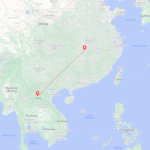



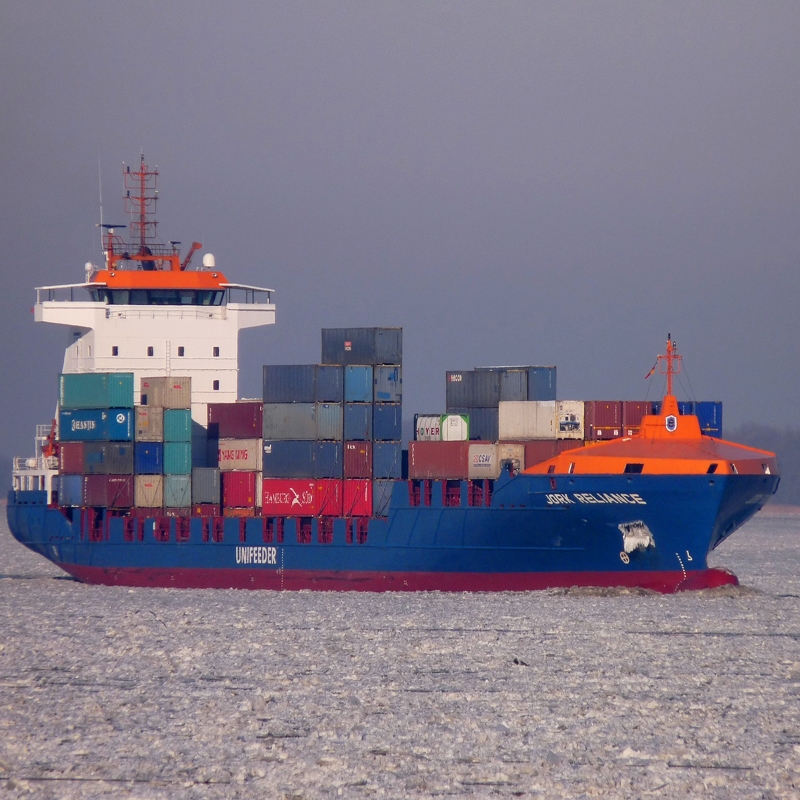
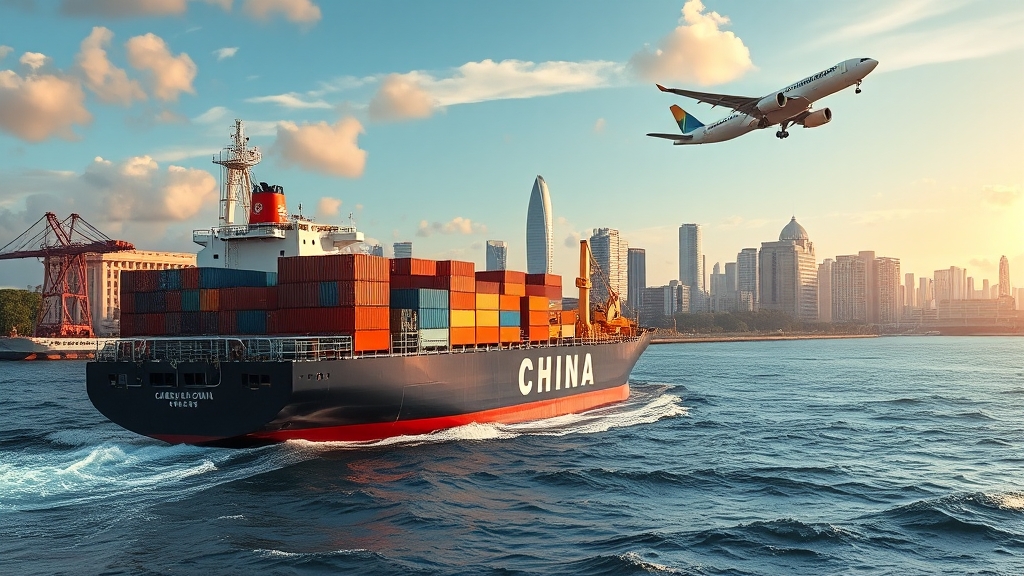
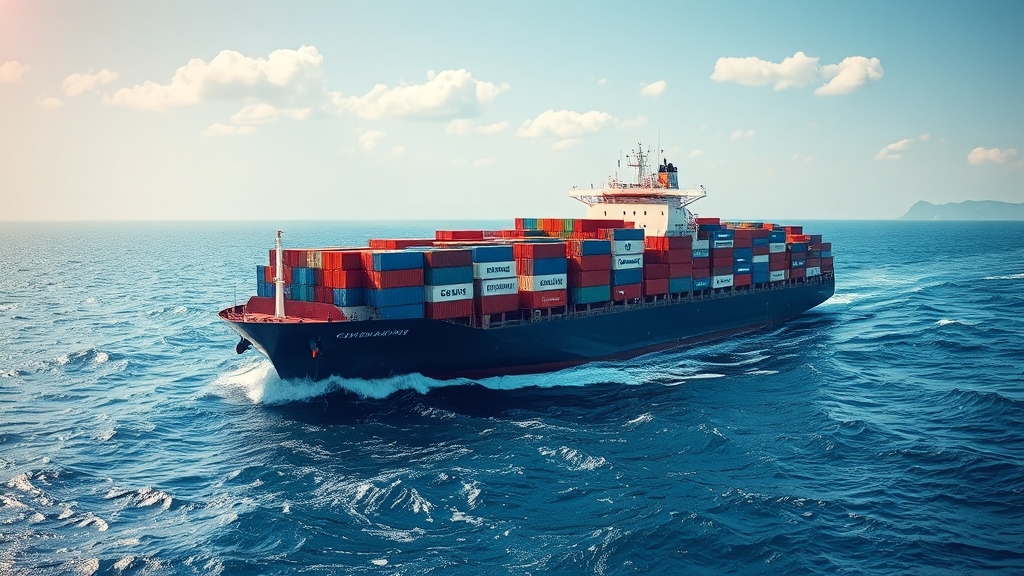





 Afrikaans
Afrikaans Shqip
Shqip አማርኛ
አማርኛ العربية
العربية Հայերեն
Հայերեն Azərbaycan dili
Azərbaycan dili Euskara
Euskara Беларуская мова
Беларуская мова বাংলা
বাংলা Bosanski
Bosanski Български
Български Català
Català Cebuano
Cebuano Chichewa
Chichewa 简体中文
简体中文 繁體中文
繁體中文 Corsu
Corsu Hrvatski
Hrvatski Čeština
Čeština Dansk
Dansk Nederlands
Nederlands English
English Esperanto
Esperanto Eesti
Eesti Filipino
Filipino Suomi
Suomi Français
Français Galego
Galego ქართული
ქართული Deutsch
Deutsch Ελληνικά
Ελληνικά Kreyol ayisyen
Kreyol ayisyen Harshen Hausa
Harshen Hausa Ōlelo Hawaiʻi
Ōlelo Hawaiʻi עִבְרִית
עִבְרִית हिन्दी
हिन्दी Hmong
Hmong Magyar
Magyar Íslenska
Íslenska Igbo
Igbo Bahasa Indonesia
Bahasa Indonesia Gaeilge
Gaeilge Italiano
Italiano 日本語
日本語 Basa Jawa
Basa Jawa ಕನ್ನಡ
ಕನ್ನಡ Қазақ тілі
Қазақ тілі ភាសាខ្មែរ
ភាសាខ្មែរ 한국어
한국어 كوردی
كوردی Кыргызча
Кыргызча ພາສາລາວ
ພາສາລາວ Latin
Latin Latviešu valoda
Latviešu valoda Lietuvių kalba
Lietuvių kalba Lëtzebuergesch
Lëtzebuergesch Македонски јазик
Македонски јазик Malagasy
Malagasy Bahasa Melayu
Bahasa Melayu മലയാളം
മലയാളം Maltese
Maltese Te Reo Māori
Te Reo Māori मराठी
मराठी Монгол
Монгол ဗမာစာ
ဗမာစာ नेपाली
नेपाली Norsk bokmål
Norsk bokmål پښتو
پښتو فارسی
فارسی Polski
Polski Português
Português ਪੰਜਾਬੀ
ਪੰਜਾਬੀ Română
Română Русский
Русский Samoan
Samoan Gàidhlig
Gàidhlig Српски језик
Српски језик Sesotho
Sesotho Shona
Shona سنڌي
سنڌي සිංහල
සිංහල Slovenčina
Slovenčina Slovenščina
Slovenščina Afsoomaali
Afsoomaali Español
Español Basa Sunda
Basa Sunda Kiswahili
Kiswahili Svenska
Svenska Тоҷикӣ
Тоҷикӣ தமிழ்
தமிழ் తెలుగు
తెలుగు ไทย
ไทย Türkçe
Türkçe Українська
Українська اردو
اردو O‘zbekcha
O‘zbekcha Tiếng Việt
Tiếng Việt Cymraeg
Cymraeg יידיש
יידיש Yorùbá
Yorùbá Zulu
Zulu